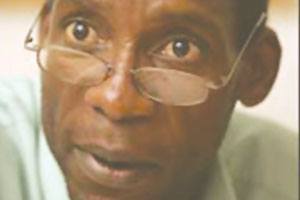
POLITICAL parties in the coalition government are using Copac’s Second All-Stakeholders’ Conference to advance partisan agendas instead of national interests, analysts have said.
Report by Patrice Makova
The two-day conference starts on Monday.
The parties are going for the conference deeply divided with Zanu PF pushing for the wholesale amendment of the Copac draft constitution while the two MDC formations, have refused to budge on the agreed charter.
Zanu PF said its proposed amendments were meant to safeguard the interests of the majority and reflect the true values of the people of Zimbabwe.
The party, which has successfully pushed for the Copac national statistical report to be tabled before the conference, wants to retain President Robert Mugabe’s imperial powers and delete provisions to do with devolution of power, dual citizenship and security sector reforms.
The MDCs, on the other hand, are adamant the draft is final, as all three parties appended their signatures to the document. They argue that the draft enshrines elements of democracy such as respect for the rule of law and human rights, popular participation and free and fair elections.
But analysts said it was clear that none of the political parties was fighting for the genuine interest of the nation.
University of Zimbabwe political science lecturer, Shakespeare Hamauswa said it was certain that the constitution-making process was a mere political contest.
He said there had been protracted negotiations since the first All-Stakeholders’ Conference in July 2009, as Zanu PF and the MDCs struggled to advance and protect their positions.
“While Zanu PF is claiming to be fighting for the empowerment of the majority, the reality is that the party is pushing for provisions which ensure that it retains control over natural resources,” Hamauswa said.
“The MDC on the other hand believes the current constitution is a stumbling block and is therefore fighting for an environment that makes its quest for power possible.”
Chairman of the National Constitutional Assembly, Professor Lovemore Madhuku said national interests could only be protected through a truly “people” driven process.
“It is extremely rare for political parties to fight for interests of the nation,” he said. There are no national interests involved when the parties are fighting for particular individuals to govern the country. Zanu PF wants to remain in power, while the MDCs want to get into power.”
Analysts said even the 1996 South African constitution, regarded as one of the best in the world, and which Copac is said to have largely “copy and pasted” from, was increasingly coming under scrutiny as many blacks there now felt it was not in their best interests.
The likes of expelled African National Congress (ANC) youth leader, Julius Malema firmly believes that although blacks won the political struggle, the negotiated constitution protected the interests of whites.
Malema has been calling for the nationalisation of mines and the passing of legislation to expropriate private property in the interests of the people. Mugabe and Tsvangirai will have final say —Mambipiri
Political analyst, Gift Mambipiri said the phrase “in the interest of the people” was being “shamelessly” thrown into this process to mask the agenda of the three Global Political Agreement principals, Mugabe of Zanu PF, Prime Minister Morgan Tsvangirai of MDC-T and leader of the smaller MDC formation, Welshman Ncube.
“The MDCs want to put in place, through this constitution, structures and systems that answer the question of how they can get state power,” said Mambipiri.
“Zanu PF, is trying to use the constitution process to promote their party political agenda, the very agenda that was refused by the people on March 29 2008. This is why what the people said, like the endorsement of devolution by six out of 10 provinces, is not acceptable to them because it runs counter to their party political position.”
He said the real constitution would come out of next week’s Monday “teas” [meeting] of the principals, away from the noise of the Second All-Stakeholders’ Conference.











